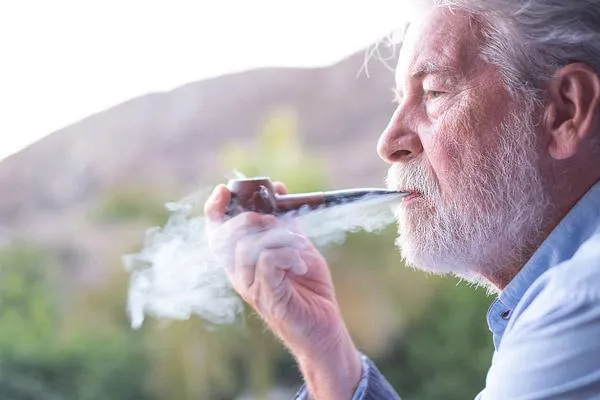
How Smoking Affects Wound Healing and Recovery: What Kansas City Residents Need to Know
Smoking is a well-known risk factor for a variety of health conditions, from heart disease to cancer, but did you know that it also severely impacts wound healing and recovery? At Trinity Woundcare & Wellness Clinic in Kansas City, Kansas, we see firsthand how smoking can slow down the healing process, increase the risk of complications, and ultimately affect your overall health.
In this article, we’ll explore how smoking interferes with wound healing and recovery, the risks it poses to your health, and how you can take action to improve your healing process.
How Smoking Affects Wound Healing
Smoking introduces toxic chemicals into the body, such as nicotine, carbon monoxide, and hydrogen cyanide, all of which impair blood flow and oxygen delivery to tissues. This process significantly disrupts the body’s ability to heal wounds and regenerate new tissue.
1. Reduced Blood Flow
Nicotine causes blood vessels to constrict, reducing blood flow to the affected area. This limits the delivery of oxygen, nutrients, and immune cells to the site of the wound. Without proper circulation, the wound cannot heal effectively or as quickly.
2. Impaired Immune Function
Smoking weakens the immune system, making it harder for the body to fight infections. As a result, smokers are at a higher risk of developing post-surgical infections, chronic wounds, and delayed healing. A weakened immune system also means your body has a harder time dealing with stress and inflammation caused by the injury.
“Cigarette smoking has been shown to impair immune function, leading to an increased risk of infection and delayed wound healing.”
— Journal of Surgical Research, 2022
3. Reduced Collagen Production
Collagen is a protein that plays a crucial role in wound healing by providing structure and strength to new tissue. Smoking decreases collagen production, making it difficult for the body to repair damaged skin and tissues. As a result, smokers often experience weaker scarring and longer recovery times.
4. Increased Risk of Complications
Smokers are more likely to experience complications from wounds, including delayed closure, poor scar formation, and increased scarring. For individuals undergoing surgery, smoking can also result in wound dehiscence, a condition where the wound reopens due to poor healing.
“Smoking is a well-documented risk factor for surgical complications, leading to slower wound healing and higher rates of infection and poor cosmetic outcomes.”
— American Journal of Surgery, 2023
Why Smokers Struggle with Faster Healing
The delayed healing process seen in smokers is not only due to the toxic chemicals in cigarettes, but also because of a range of physiological effects that smokers experience:
Chronic inflammation: Smoking causes the body to stay in a heightened state of inflammation, slowing down the healing process.
Decreased oxygenation: Because smoking reduces oxygen levels in the blood, tissues do not receive the oxygen they need to repair and regenerate.
Slower tissue regeneration: Smoking hinders the body’s ability to produce new cells and tissue, extending the time needed to heal wounds.
The Benefits of Quitting Smoking for Wound Healing
The good news is that even if you’ve been smoking for years, your body can begin to heal when you quit. Here’s how quitting smoking can improve your wound healing:
Improved blood circulation: Within hours of quitting smoking, circulation improves, leading to better delivery of oxygen and nutrients to your wounds.
Enhanced immune function: As your body detoxifies, your immune system gets stronger, reducing your risk of infection and supporting healing.
Better collagen production: After quitting, your body will start producing collagen more effectively, helping your wounds close faster and with stronger, healthier tissue.
Even if you’re not able to quit immediately, cutting down on smoking can still have a positive effect on your recovery.
How Dr. Judy Can Help You Heal Faster
At Trinity Woundcare & Wellness, we specialize in providing advanced treatments that accelerate the healing process. Dr. Judy’s approach to wound care combines the latest in medical technology with natural strategies for optimal healing, including:
Nutritional support: Dr. Judy emphasizes the importance of a balanced diet to support collagen production and immune function.
IV therapy: Our IV nutrient therapy can deliver essential vitamins and minerals directly to the bloodstream, promoting faster healing.
Personalized wound care: We offer customized care plans to ensure wounds heal quickly and effectively, while reducing the risk of complications.
If you’re struggling with a wound that’s taking longer to heal, or if you’re a smoker looking to optimize your healing, schedule a consultation with Dr. Judy today.
Learn more about our wound care services here »
Protecting Your Health: Take Action Today
If you smoke, quitting can drastically improve your healing times and overall health. Even if you’re not ready to quit entirely, reducing your smoking habits can still make a significant difference in your wound healing.
At Trinity Woundcare & Wellness, we are committed to helping Kansas City residents recover as quickly as possible from injuries, surgeries, and chronic wounds. By adopting healthier habits, including quitting smoking, you can give your body the best chance to heal.
Call us at 913-285-5553 or visit 8043 State Ave, Kansas City, KS 66112 to schedule your wound care consultation with Dr. Judy.
About the Author
Dr. Judy earned her Doctorate in Nursing Practice from the University of Kansas and has over 24 years of experience in healthcare. She specializes in wound care, regenerative medicine, and integrative therapies to help patients achieve faster, healthier recovery. Dr. Judy is passionate about guiding Kansas City residents toward better health through personalized care and lifestyle improvements.
Keywords
smoking wound healing Kansas City, how smoking affects wound recovery, wound care for smokers, delayed healing smoking, smoking and tissue regeneration, Dr. Judy wound care, Trinity Woundcare & Wellness, chronic wounds Kansas City, wound healing tips Kansas City, healing faster after smoking
